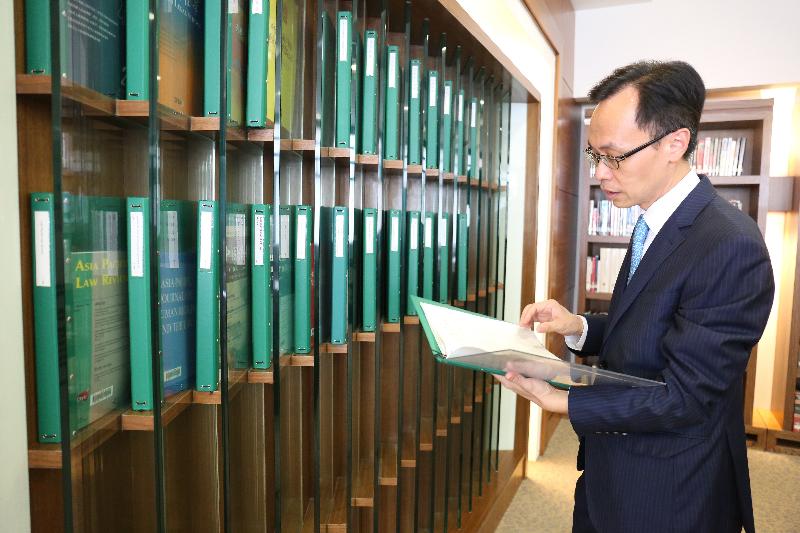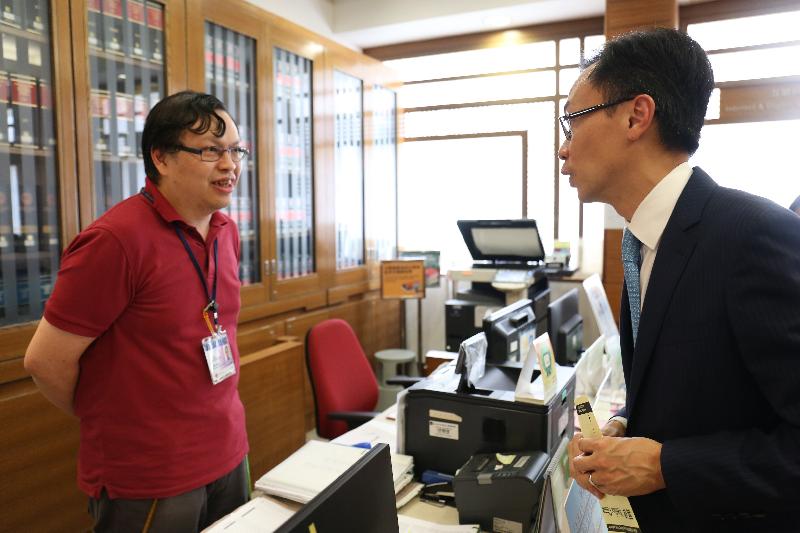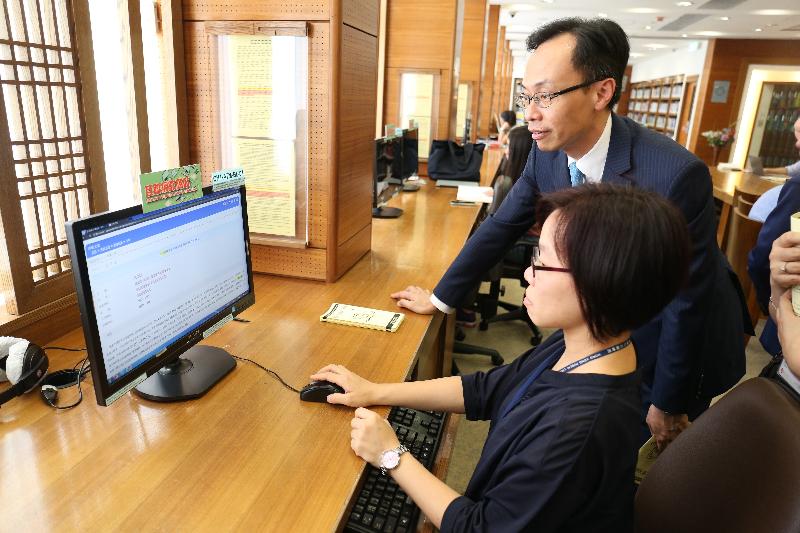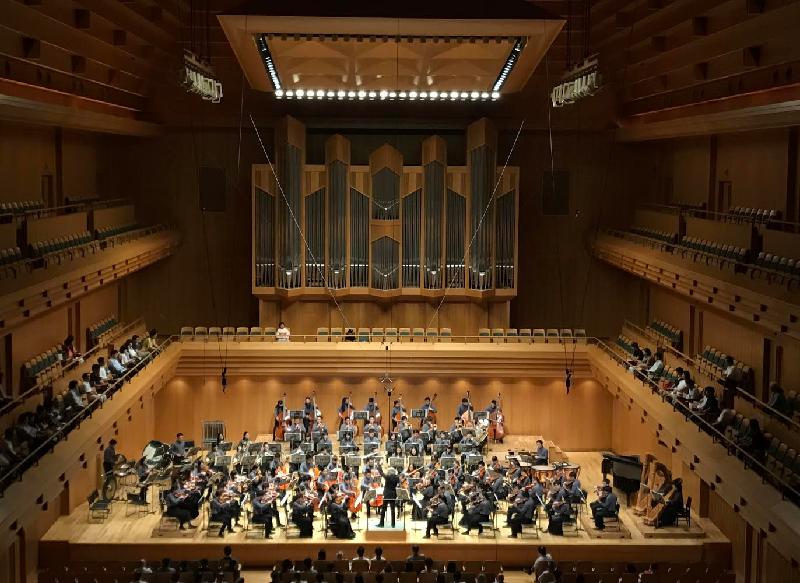The Centre for Health Protection (CHP) of the Department of Health is investigating today (August 24) one additional local case of dengue fever (DF) and again urged the public to maintain strict environmental hygiene, mosquito control and personal protective measures both locally and during travel.
The case is detailed below:
| Sex |
Male |
| Age |
66 |
| Any underlying illness |
Yes |
| Onset date |
August 18 |
| Symptoms |
Fever, headache and rash |
| Residence |
Lung Tsai Tsuen, Cheung Chau |
| Local movement during incubation period |
Cheung Chau |
| Recollection of mosquito bite history |
Yes |
| Travel history during incubation period |
Nil |
| Medical attendance |
Sought medical attention at St John Hospital on August 18 and 23; admitted to Pamela Youde Nethersole Eastern Hospital on August 23 |
| Condition |
Stable |
| Condition of home contact(s) |
Not applicable |
| Dengue virus laboratory result |
Positive |
"We are working closely with the Food and Environmental Hygiene Department (FEHD) to assess and prevent possible spread of infection. The FEHD's vector investigations, surveillance and control are ongoing. Epidemiological investigations are ongoing," a spokesman for the CHP said.
"The CHP, together with the FEHD, will conduct a health talk at Chuk Yuen Estate Community Centre at 8pm tonight to deliver health advice. The CHP has also provided information and details of geographical distribution on the local DF cases on the CHP's designated webpage for DF to facilitate handy access to information for the public," the spokesman said.
The CHP appeals to members of the public not to visit Lion Rock Park during the closure period in order to prevent contracting DF. Scientific studies have shown that infected persons can transmit the virus to mosquitoes through mosquito bites even if they remain asymptomatic or before their onset of symptoms, leading to further spread of the disease. Hence, people who have visited Lion Rock Park are advised to apply insect repellent for 14 days after their last visit, and those with DF symptoms should seek medical advice as early as possible.
Persons who have been to the vicinity of Wong Tai Sin (particularly Lion Rock Park), Kwai Shing West Estate, Clear Water Bay Second Beach, Cheung Chau (Hillside Road, Tsan Tuen Road, Fa Peng Road, San Hing Street, Cheung Chau Sai Tai Road, Lung Tsai Tsuen and Xavier House), Highland Park, Sai Tso Wan Recreation Ground, Wing Yiu Street, Tak Long Estate, Portland Street, Shanghai Street, Greenfield Garden, Jade Villa, Le Point and Ki Lun Tsuen with DF symptoms should call the CHP's hotline (2125 1122) for laboratory investigation or referral as appropriate. The hotline operates from 9am to 5.45pm daily.
"We have informed the Guangdong and Macao health authorities to alert them to the latest situation," the spokesman added.
This is the 24th local case recorded this year. Separately, from August 18 to 24, the CHP recorded four confirmed imported DF cases. The patients had been to the Philippines (two cases), Indonesia (one case) and Thailand (one case) during the incubation period. Excluding the local cases, as of today, 61 imported cases had been recorded in 2018. The cases were mainly imported from Thailand (26), the Philippines (12) and Cambodia (seven).
Separately, from August 18 to 24, the CHP recorded one imported chikungunya fever (CF) case. The patient had been to the Philippines during the incubation period. As of yesterday, one confirmed case of CF had been recorded in 2018.
In the rainy season, the public should take heed of the following advice on mosquito control:
- Thoroughly check all gully traps, roof gutters, surface channels and drains to prevent blockage;
- Scrub and clean drains and surface channels with an alkaline detergent compound at least once a week to remove any deposited mosquito eggs;
- Properly dispose of refuse, such as soft drink cans, empty bottles and boxes, in covered litter containers;
- Completely change the water of flowers and plants at least once a week. The use of saucers should be avoided if possible;
- Level irregular ground surfaces before the rainy season;
- Avoid staying in shrubby areas; and
- Take personal protective measures such as wearing light-coloured long-sleeved clothes and trousers and apply insect repellent containing DEET to clothing or uncovered areas of the body when doing outdoor activities.
To reduce the risk of infections spread by mosquitoes, apart from general measures, travellers returning from affected areas should apply insect repellent for 14 days (DF) or at least 21 days (Zika Virus Infection) upon arrival in Hong Kong. If feeling unwell, seek medical advice promptly and provide travel details to the doctor. DEET-containing insect repellents are effective and the public should take heed of the tips below:
The public should call 1823 in case of mosquito problems and may visit the DF pages of the CHP and its Travel Health Service, the latest Travel Health News, tips for using insect repellents, the CHP Facebook Page and YouTube Channel, and the FEHD's Guidebook on Control and Prevention of Mosquito Breeding for more information.




